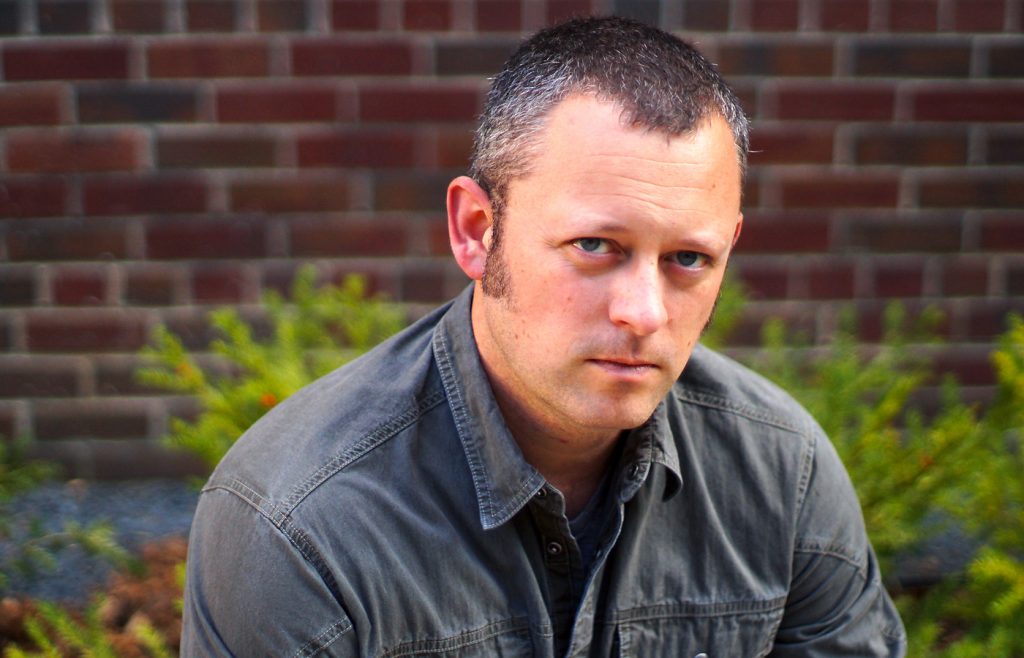
Benjamin Percy, who has taught creative writing at Iowa State and the University of Iowa, doesn’t have time for genre categories and limitations.
In a 2015 interview, he told me, “Everybody fusses over labels. Call me whatever you want. I grew up on genre. Western, fantasy, sci-fi, horror, spy, thriller, mystery—whatever—I read it with pleasure, wanting to know what happened next. Then I stepped into my first writing workshop in college and was told that kind writing was forbidden . . . but I never fell out of love with genre. And I guess my writing is a sort of hybridized beast. I will describe—with pretty sentences—helicopters exploding. I hope for artfulness, but I also hope to bring a propulsive energy to the page.”
Percy blends that artfulness and energy in a variety of formats—short stories, novels, essays, comics, and most recently, podcasts. I’m a long-standing fan of his work, dating back to his first novel, 2010’s The Wilding. In 2015, I chose his novel The Dead Lands—a post-apocalyptic reimagining of the journey of Lewis and Clark—as one of my top five books of the year.
I have avidly followed his work in comics, as well. His longest run to date has been on DC Comics’ Green Arrow, taking the character from the tail end of DC’s New 52 initiative through six volumes of the company’s Rebirth storylines. Perry has also spent some time with various characters from Gotham City, including Batman, Nightwing, and the current Robin—Damian Wayne—as leader of the Teen Titans.
Percy’s work is character driven, but he also has a gift for making the environment in which his characters find themselves a major part of his tales. Often, the natural world—or some perversion of it—serves as an antagonist or goad.
Percy has taken those themes off the page and into our earbuds—and he’s found the perfect character for his brand of storytelling. In Wolverine: The Long Night, Percy takes Marvel Comics’ hugely popular antihero to Alaska, where he may or may not have committed a series of brutal murders. The podcast stars Richard Armitage as the title character, and Percy exploits the character’s angst and thirst for redemption every bit as effectively as he employs Wolverine’s adamantium claws.
The unforgiving landscape of Alaska and a religious leader’s insistence that the land is a nexus of power are major aspects of the plot and are of a piece with Percy’s prose and comics work (sharp-eyed and -eared Green Arrow readers might also notice a connection between Percy’s Alaska as depicted in his DC work and in his Marvel work).
A second season of the Wolverine podcast—The Lost Trail—is now available, and I’m looking forward to spending more time with Percy’s take on the character. Similarly, I’m eager to read Percy’s forthcoming short story collection, Suicide Woods, set for release this October. Whether you delve into his novels and stories, his comics, or his podcast scripts, Percy—true to his own reading passions—will keep you engrossed in his story. And that story, regardless of format, will be well wrought, indeed.
